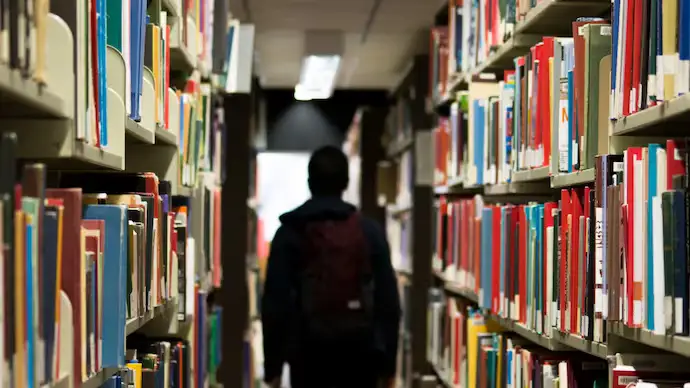NCERT Solutions Class 10 for Science Chapter 16 Sustainable Management of Natural Resources
NCERT Solutions Class 10 for Science Chapter 16 Sustainable Management of Natural Resources : In this post, we will share with you all the detailed NCERT Solutions of Class 16 Sustainable Management of Natural Resources. This will contain both in-text and back-exercise questions for Science and Social Science, and all exercise questions for Mathematics. For all school and board level examinations, doing all the NCERT Questions is a must.
Why are NCERT Questions Important?
NCERT Questions and Answers not only help you get hold of concepts firmly and enhance your understanding, but also form the base of all types of questions asked in exams. Questions asked in exam are more or less the same type as mentioned in NCERT. Moreover, sometimes the questions in NCERT are directly asked in exams, as it is, without any changes.
Hence, it’s very important to understand NCERT Questions and Answers.
- Get NCERT Solutions of all Science Chapters of Class 10
- Get NCERT Solutions of all Mathematics Chapters of Class 10
- Get NCERT Solutions of all Social Science Chapters of Class 10
- Get Notes, PYQs, Free E-Books, and other material for Class 10
- Join our Telegram Channel for Latest Updates here
[adinserter block=”3″]
Class 10 Science Chapter 16 Sustainable Management of Natural Resources
[twy_show_add_bookmark]
In-Text Questions (Page 271)
Question 1:
What changes can you make in your habits to become more environment-friendly?
Answer 1:
In order to become more environment-friendly, the following practices can be incorporated in our day-to-day lives:
1.Turning off any electrical appliance (such as TV’s, water heaters, lights, fans, and air conditioners) when they are not in use.
2.Avoiding the wastage of water by fixing any leaking taps or pipes as soon as possible. Also, the amount of water consumed must be controlled. For example, the tap should not be left running while brushing teeth.
3.Disposing of plastic and glass wastes in recycling bins (many plastics take a long time to decompose and can have adverse effects on the environment).
4.Using recyclable and eco-friendly products instead of the convenient plastic products. For example, using paper or cloth bags instead of polythene
Question 2:
What would be the advantages of exploiting resources with short-term aims?
Answer 2:
Overconsumption of resources with short-term interests in mind will give a boost to the economy. However, the increased growth of the economy will be short-lived since the exploitation of resources is not sustainable. Exploiting resources for the sake of short-term goals will be beneficial to the present generations but not for future generations.
Question 3:
How would these advantages differ from the advantages of using a long-term perspective in managing our resources?
Answer 3:
This way the resources can be used for the benefit of the present generation and also conserved for the benefit of generations to come. This ensures uniform distribution of resources among the people.
Question 4:
Why do you think there should be equitable distribution of resources ? What forces would be working against an equitable distribution of our resources ?
Answer 4:
There should be equitable distribution of resources so that all, rich, powerful and poor people get benefit from the development of these resources. Rich, greedy and powerful people could work against an equitable distribution of our resources.
[adinserter block=”3″]
In-Text Questions (Page 275)
Question 1:
Why should we conserve forests and wildlife?
Answer 1:
The conservation of forests is very important for the stability of the environment. Forests serve as a home to a huge variety of life-forms. Destruction of these forests can disturb the food chain and lead to the extinction of many important species. Also, forests protect the soil from erosion and play a vital role in the water cycle. The loss of forests can severely affect the day-to-day lives of humans.
Question 2:
Suggest some approaches towards the conservation of forests.
Answer 2:
Some methods for forest conservation are as follow :
1Only except some trees, there should be ban on cutting of forest. Forests stop soil erosion.
2.Forests should be saved from fires. Many forests get destroyed due to fires.
3.Forests should be saved from pests and insects. Pesticides, insecticides should be sprayed in forests.
4.Overgrazing should be prohibited.
5.National rules and laws should be strictly enforced.
In-Text Questions (Page 278)
Question 1:
Find out about the traditional systems of water harvesting management in your region.
Answer 1:
Many of us live in cities, where water is supplied by the municipal authorities. In the houses, systems of rainwater harvesting are installed which collect the water running off and channel it into a special pit created for the purpose. This helps to recharge ground water.
Efforts are being made to collect run off rain water in soak pits. This water enriches underground water and can cause rise in water table.
Run off water from roof tops can also be collected in trenches, specially made to enrich underground water table.
Question 2:
Compare the above system with the probable systems in hilly/ mountainous areas or plains or plateau regions.
Answer 2:
In hilly regions, rainwater is often collected and channelled with the help of a stream. The stream is diverted to different areas with the help of canals for the purpose of irrigation. In mountainous regions, water is commonly obtained from the rivers that flow from the glaciers.
In the plains, water is obtained from many natural sources such as lakes and rivers. Groundwater is also harvested with the help of borewells for irrigation and human consumption.
Question 3:
Find out the source of water in your region/locality. Is water from this source available to all people living in that area?
Answer 3:
In metropolitan cities, the primary source of water is groundwater. This water is made available to all people in the city. However, poor infrastructure in some localities makes it difficult for some people to obtain the water.
[adinserter block=”3″]
Exercise Questions (Page 280)
Question 1:
What changes would you suggest in your home in order to be environment friendly?
Answer 1:
Some important changes that can help make homes more environment-friendly include:
1.Segregation of the garbage into biodegradable waste (food waste) and non-biodegradable waste (plastics).
2.Use of eco-friendly products such as cloth shopping bags and paper cups instead of plastics.
3.Avoiding the wastage of electricity by switching off the electrical appliances that are not in use.
4.Avoiding the wastage of water by quickly fix leaking taps and incorporating practices that reduce water wastage (such as closing the taps while brushing and using water judiciously while bathing).
Question 2:
Can you suggest some changes in your school which would make it environment-friendly?
Answer 2:
Following changes can be made in schools to make it environment friendly.
1.Plant enough trees in the school.
2.Leaking taps should be repaired so that water is not wasted.
3.Bring food in reusable boxes, not in plastic bags or in aluminium foil.
4.Teachers can educate students about environmental conservation.
5.There should be more windows in school for natural light.
Question 3:
We saw in this chapter that thue are four main stakeholders when it comes to forests and wild life. Which among these should have the authority to decide the management of forest produce ? Why do you think so ?
Answer 3:
The people living in and around the forests and the forest department of The Government could be given the authority to manage the forests because the forest department of the Government has sufficient power and resources that can manage the forest resources well. The people living in and around forests know about the forest products and use them only according to their needs. In addition to this, they would not damage the forests and use forests sustainably.
Question 4:
How can you as an individual contribute or make a difference to the management of (a) forests and wild life (b) water resources and (c) and petroleum ?
Answer 4:
(a) As an individual we can contribute the following to conserve forest and wildlife.
1.Trees should not be cut. If trees needed to be cut, then new trees should be planted in their place.
2.Trees should be saved from fire.
3.Forest animals should be protected and their illegal hunting should be prohibited. Sustainable Management of Natural Resources
(b) As an individual we can contribute the following in the management of water resources.
1.Tap should be closed when water is not in use while brushing, shaving, washing hands.
2.Protect water sources from getting polluted.
3.If there is any leak in water distribution system, then repair it or inform concerned agency.
(c) As an individual we can contribute the following in the management of coal and petroleum.
1.Public transport should be used instead of private vehicle. It saves petrol.
2.Do not use electricity in vain.
3.Switch off the vehicle at the red light if you have to wait for too long.
4.Wear extra sweater instead of using heaters.
5.Use LPG or CNG.
Question 5:
What can you as an individual do to reduce your consumption of the various natural resources ?
Answer 5:
We can do the following as an individual to reduce our consumption of the various natural resources.
1.Follow the principle of three R’s i.e., Reduce, Recycle and Reuse.
2.Plastic bags should be reused for the storage of food and small things.
3.Food should be taken as per requirement.
4.Reusable bottles should be used to store water everyday.
5.The devices based on renewable sources of energy like solar cell, solar heater, etc. should be used.
[adinserter block=”3″]
Question 6:
List five things you have done over the last one week to
(a) conserve our natural resources.
(b) increase the pressure on our natural resources.
Answer 6:
Practices for the conservation of natural resources include:
1.Use of bicycles and public transport while travelling to reduce fuel consumption.
2.Use of recycled paper and other recycled products.
3.Segregation of garbage into biodegradable and non-biodegradable bins.
4.Avoiding the wastage of water by using it judiciously and fixing any leaking taps/pipes.
Practices that deplete natural resources include:
1.Wastage of electrical energy by leaving electrical appliances on after use.
2.Wastage of water by ignoring any leaking pipes/taps and leaving the tap on while brushing.
3.Excessive use of plastic products such as polythene bags.
Question 7:
On the basis of the issues raised in this chapter, what changes would you incorporate in your lifestyle in a move towards the sustainable usage of our resources?
Answer 7:
We would bring following changes in our lifestyle so that sustainable use of our natural resources can be encouraged.
1.We should limit our personal and collective needs beyond laws, rules and regulation so that the benefit of development can be made available to all and future generations.
2.Close the tap when not in use.
3.Turn off the lights, fans etc. in home, school or office when not in use.
4.Make least use of polythene bags and these should not be thrown in garbage.
[twy_show_add_bookmark]
[adinserter block=”3″]
For More Content related to Class 10 –
- Get NCERT Solutions of all Science Chapters of Class 10
- Get NCERT Solutions of all Mathematics Chapters of Class 10
- Get NCERT Solutions of all Social Science Chapters of Class 10
- Get Notes, PYQs, Free E-Books, and other material for Class 10
- Join our Telegram Channel for Latest Updates here
[adinserter block=”3″]










